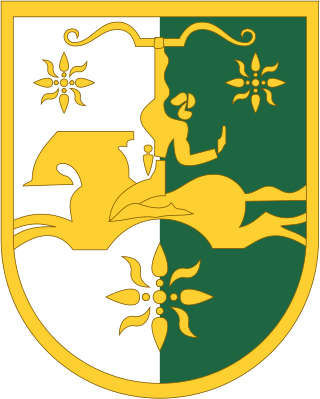Related Research Articles

Since its independence, Armenia has maintained a policy of trying to have positive and friendly relations with Iran, Russia, and the West, including the United States and the European Union. It has full membership status in a number of international organizations, such as the Council of Europe and the Eurasian Economic Union, and observer status, etc. in some others. However, the dispute over the Armenian genocide of 1915 and the ongoing Nagorno-Karabakh conflict have created tense relations with two of its immediate neighbors, Azerbaijan and Turkey.

Georgia's location, nestled between the Black Sea, Russia, and Turkey, renders it strategically important. It is developing as the gateway from the Black Sea to the Caucasus and the larger Caspian region, but also serves as a buffer between Russia and Turkey. Georgia has a long and tumultuous relationship with Russia, but it is reaching out to its other neighbours and looking to the West in search of alternatives and opportunities. It signed a partnership and cooperation agreement with the European Union, participates in the Partnership for Peace, and encourages foreign investment. France, Germany, South Korea, the United Kingdom, and the United States all have embassies in Tbilisi. Georgia in 2004-2008 sought to become a member of NATO, but did not succeed in the face of strong Russian opposition.

The Ministry of Foreign Affairs of the Russian Federation is the central government institution charged with leading the foreign policy and foreign relations of Russia. It is a continuation of the Ministry of Foreign Affairs of the Russian Soviet Federative Socialist Republic, which was under the supervision of the Soviet Ministry of External Relations. Sergei Lavrov is the current foreign minister.

The Community for Democracy and Rights of Nations, also commonly and colloquially known as the Commonwealth of Unrecognized States, rarely as CIS-2, is an international organization in Eastern Europe and the South Caucasus of three breakaway states in the territory of the former Soviet Union, all of which have limited to no recognition from the international community.

The Republic of Abkhazia is a partially recognized state in the South Caucasus which declared independence from Georgia during the War in Abkhazia (1992–1993). At the time, the Soviet Union had recently collapsed (1991).

Eduard Aghvani Nalbandian is an Armenian former diplomat who served as Minister of Foreign Affairs of Armenia from April 2008 to May 2018. He is currently a professor at the Moscow State Institute of International Relations.

The Ministry of Foreign Affairs of Armenia (MFA) is a state body of executive power, which elaborates and implements the foreign policy of the Government of Armenia and organizes and manages diplomatic services. The MFA acts accordingly to the Constitution and legislation of Armenia. The Ministry of Foreign Affairs coordinates the activities of the executive power bodies of the Republic in the international arena. Since 2021, Ararat Mirzoyan has been the Minister of Foreign Affairs of Armenia.

Abkhazia and South Ossetia are separatist regions of Georgia in the Caucasus. Most countries recognise them as part of Georgia, while Russia, Venezuela, Nicaragua, Nauru, and Syria regard them as independent. Russia's initial recognition of the independence of Abkhazia and South Ossetia occurred in the aftermath of the Russo-Georgian War in 2008. The government of Georgia considers the republics to be Russian-occupied territories.

Abkhazia–Nicaragua relations refers to bilateral foreign relations between the Republic of Abkhazia and Nicaragua. Nicaragua recognized Abkhazia and South Ossetia on September 5, 2008.

Abkhazia–Venezuela relations refers to bilateral relations between the breakaway Republic of Abkhazia and Venezuela. Venezuela recognised Abkhazia, along with South Ossetia, on 10 September 2009, almost ten years after the country declared independence from Georgia in 1999. Venezuela was the third state to recognise Abkhazia and South Ossetia, after Russia and Nicaragua.

Ara Henrii Ayvazyan is an Armenian diplomat and former Minister of Foreign Affairs of Armenia.
Dragica Ponorac is a Montenegro diplomat currently serving as Montenegro Ambassador Extraordinary and Plenipotentiary to Ukraine and Armenia.
References
- ↑ "Ambassador: Nicaragua is interested in developing relations with Armenia". armenpress.am. Retrieved 2021-10-27.
- ↑ "Newly-appointed Ambassador of Nicaragua handed over copies of his credentials to the Minister of Foreign Affairs of Armenia". www.mfa.am (in Armenian). Retrieved 2021-10-27.
- ↑ "Press release on Deputy Foreign Minister Sergey Ryabkov's meeting with Nicaraguan Ambassador to Russia Juan Ernesto Vasquez Araya". www.mid.ru. Retrieved 2021-10-27.
- ↑ "Press release of the Ministry of Foreign Affairs of the Republic of South Ossetia | Ministry of Foreign Affairs of The Republic of South Ossetia". www.mfa-rso.su. Retrieved 2021-10-27.